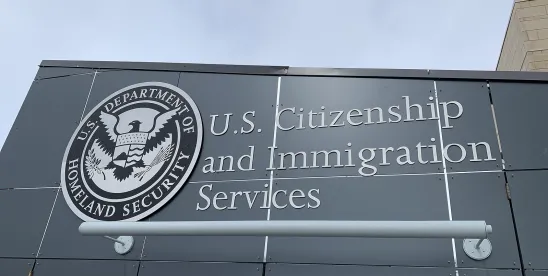U.S. Citizenship and Immigration Services (USCIS) announced July 18, 2025, that it has received enough H‑1B petitions to reach both the regular cap of 65,000 and the advanced U.S. degree exemption of 20,000 for fiscal year 2026. This means no additional cap‑subject H‑1B petitions can be filed for positions starting before Oct. 1, 2026. Employers that did not have a registration selected this season will not be able to sponsor a foreign national for a cap‑subject H‑1B until the next registration window opens in early 2026 for employment beginning Oct. 1, 2026.
Certain H‑1B filings remain unaffected by the cap. Employers may continue to file cap‑exempt petitions for qualifying nonprofit organizations, research institutions, and affiliated entities, as well as H‑1B amendments, extensions of stay, and changes of employer for individuals already in H‑1B status. These petitions are not subject to the annual numerical limits and can be filed at any time.
For U.S. employers, reaching the cap closes one of the most frequently used pathways to hire foreign talent in specialty occupations for the coming fiscal year. Employers with employees who were not selected should begin evaluating alternatives. Depending on the individual’s background and the position, options may include the O‑1 visa for individuals with extraordinary ability, the L‑1 visa for intracompany transferees, the TN visa for Canadian and Mexican professionals, the E‑2 or E‑3 visas for eligible nationals, or pursuing cap‑exempt H‑1B employment through certain nonprofit or research institutions. Some employers may also consider using F‑1 OPT and STEM OPT extensions to bridge employment until the next H‑1B cycle.
It is important to note that the H‑1B cap season operates on an annual basis. USCIS typically opens the electronic registration period in March, conducts its selection process shortly thereafter, and then allows employers with selected registrations to submit petitions for an October start date. The next opportunity to file a new cap‑subject H‑1B petition will be after the registration window opens in early 2026.
Given increased worksite visits and enforcement actions by both Immigration and Customs Enforcement (ICE) and the Fraud Detection and National Security (FDNS) Directorate, employers should maintain strong compliance practices and ensure that their immigration files and public access files are up to date and in order.
Employers may wish to consult with experienced immigration counsel, who can help assess available options, prepare strong petitions for selected beneficiaries, develop a strategy for next year’s H‑1B registration season, and advise on compliance programs to mitigate enforcement risks.



 />i
/>i
